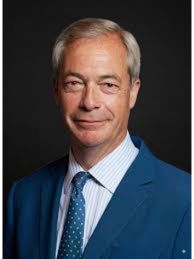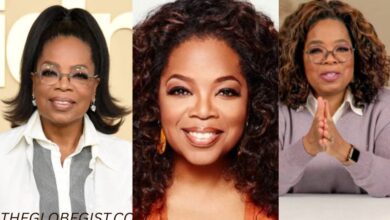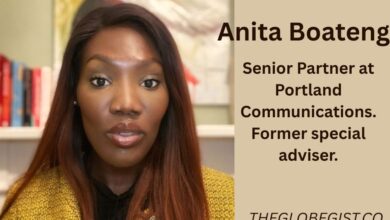Nigel Farage: A Controversial Force in British Politics

Few figures in modern British politics have had as significant and polarizing an impact as Nigel Farage. Known as the face of the Brexit movement and one of the most prominent populist politicians in Europe, Farage’s political journey has been filled with determination, controversy, and relentless campaigning. From his early beginnings in finance to his rise as leader of UKIP, the Brexit Party, and now Reform UK, Nigel Farage has continuously positioned himself as a challenger to the political establishment. His outspoken nature, media presence, and political resilience make him a central figure worth exploring in depth.
Early Life and Background
Nigel Paul Farage was born on 3 April 1964 in Farnborough, Kent, England. He came from a middle-class family; his father was a stockbroker who later battled alcoholism, an element of Farage’s upbringing that shaped his resilience. Educated at Dulwich College, an independent school in South London, Farage developed early political interests. At just 14, he joined the Conservative Party, inspired by Margaret Thatcher’s leadership.
Farage’s early professional life began in the London Metal Exchange, where he worked as a commodities trader. His business experience provided him with a sense of economic independence and a disdain for bureaucracy—views that would later fuel his political arguments against the European Union.
Breaking with the Conservatives
In 1992, Farage made a decisive break from the Conservative Party after Prime Minister John Major signed the Maastricht Treaty, which expanded European integration. This event marked a turning point, as Farage became convinced that Britain was losing its sovereignty to Brussels. Driven by a belief in independence and national control, he helped found the UK Independence Party (UKIP), a fringe movement at the time.
UKIP and the Fight Against the EU
Farage quickly emerged as the most recognizable face of UKIP. His charisma and ability to connect with ordinary voters set him apart from traditional politicians.
In 1999, he was elected as a Member of the European Parliament (MEP) for South East England, a role he would hold until 2020. During his time in Brussels, Farage became infamous for his fiery speeches attacking EU leaders. His criticism of figures like Herman Van Rompuy and Jean-Claude Juncker earned him both applause and condemnation.
Farage’s biggest breakthrough came in 2014, when UKIP won the most seats in the European Parliament elections, surpassing both Labour and the Conservatives. This victory placed immense pressure on then-Prime Minister David Cameron, ultimately leading to the 2016 Brexit referendum.
The Brexit Referendum and Aftermath
Farage became one of the loudest and most passionate voices in the Leave campaign. His ability to appeal to concerns over sovereignty, immigration, and national identity resonated strongly with millions of voters. Although Farage was not officially part of the Conservative-led Vote Leave campaign, his grassroots efforts were crucial in energizing the Brexit movement.
On 23 June 2016, Britain voted to leave the European Union, a political earthquake that reshaped the nation’s future. The morning after the vote, Farage declared it Britain’s “Independence Day.” Shortly after, he stepped down as UKIP leader, stating he had “done his bit” for the cause.
The Brexit Party and Reform UK
Although Farage stepped back, he never truly left politics. Frustrated with the government’s handling of Brexit negotiations, he launched the Brexit Party in 2019. The party surged in the European elections that year, winning 29 seats and becoming the largest UK party in the European Parliament.
In 2021, the Brexit Party was rebranded as Reform UK, broadening its agenda beyond Brexit. The party began campaigning on immigration, taxation, healthcare, and freedom of speech. Farage’s ability to adapt his platform has kept him relevant long after Britain officially left the EU.
Media Career and Public Persona
Farage’s influence extends beyond politics into media and entertainment. He has been a frequent guest on television, including appearances on BBC Question Time, and hosted shows on LBC radio and GB News. His candid speaking style and populist tone have attracted both loyal supporters and fierce critics.
In 2023, Farage appeared on the reality TV show “I’m a Celebrity…Get Me Out of Here!”, further cementing his role as a household name. His media career has allowed him to connect with audiences who may not follow traditional political debates.
Parliamentary Breakthrough
For decades, Farage contested parliamentary seats in the UK but failed to win despite multiple attempts. However, in July 2024, he finally secured a seat in the House of Commons, representing Clacton-on-Sea. Winning with over 46% of the vote, his success marked a significant milestone and gave Reform UK a foothold in Westminster politics.
Reform UK’s Political Agenda
Reform UK, under Farage’s leadership, advocates for a platform known as “Our Contract with You.” Its main proposals include:
-
Tax reforms: Lowering taxes and removing stamp duty on homes under £750,000.
-
Immigration control: Strict measures on “non-essential” immigration.
-
Energy and environment: A push for cheaper energy, opposing some net-zero policies.
-
Human rights: Proposals to withdraw from the European Convention on Human Rights.
These policies reflect Farage’s focus on sovereignty, freedom, and reducing government interference.
Controversies and Criticisms
Nigel Farage has always been surrounded by controversy. His critics accuse him of stoking division, spreading populist rhetoric, and oversimplifying complex issues.
One major scandal was the Coutts Bank affair in 2023, where his bank account was closed after internal notes described him as a “xenophobic grifter.” The fallout led to the resignation of NatWest CEO Alison Rose, turning Farage into a symbol of political bias within corporate Britain.
He has also been criticized for his statements on immigration and multiculturalism, often accused of fueling anti-immigrant sentiment. Nevertheless, his supporters view him as a truth-teller who stands up against political correctness and establishment hypocrisy.
Global Reach and U.S. Connections
Farage’s influence is not limited to Britain. He has long-standing ties with American conservatives, including Donald Trump, who once called him a friend. Recently, Farage has campaigned on free speech issues, even testifying before U.S. Congress about what he calls the UK’s “illiberal censorship regime.”
This global engagement positions Farage as more than a domestic politician—he is a transatlantic figure in the populist movement.
Rivalries and Future Challenges
Farage now faces new challenges, including the rise of Advance UK, a rival right-wing movement backed by controversial figures like Elon Musk and Tommy Robinson. The competition underscores the fragmented state of Britain’s right-wing politics.
Despite these challenges, Farage’s ability to reinvent himself and remain relevant suggests he will continue shaping British debates for years to come.
Legacy and Impact
Nigel Farage’s legacy is already assured. He is widely regarded as the single most influential figure in the Brexit saga, credited with forcing the referendum and shaping Britain’s departure from the EU. Love him or hate him, Farage has left an indelible mark on the political landscape.
Whether his Reform UK movement grows into a major force or remains a challenger party, Farage’s role as a disruptor is undeniable. He thrives on being the outsider who speaks directly to the people, bypassing what he sees as a disconnected political elite.
Conclusion
Nigel Farage’s journey is one of persistence, controversy, and political disruption. From his days as a commodities trader to becoming one of Britain’s most recognized politicians, he has consistently positioned himself against the establishment. His campaigns on sovereignty, immigration, and free speech have resonated with millions, while also sparking fierce opposition.
As Britain continues to navigate its post-Brexit identity, Farage remains a central figure in shaping the debate. Whether as a politician, broadcaster, or international campaigner, his influence shows no sign of fading. In the end, Nigel Farage is not just a politician—he is a political phenomenon who has redefined what it means to challenge the system.
For more in-depth political insights and global analysis, visit The Globe Gist.
you may also read about Nigel Farage second wife: Kirsten Mehr
1. Who is Nigel Farage?
Nigel Farage is a British politician, broadcaster, and leader of Reform UK. He is best known as a leading figure in the Brexit movement that led to the United Kingdom leaving the European Union.
2. When and where was Nigel Farage born?
He was born on 3 April 1964 in Farnborough, Kent, England.
3. What political parties has Nigel Farage led?
He has led the UK Independence Party (UKIP), the Brexit Party, and now Reform UK.
4. Did Nigel Farage ever win a seat in the UK Parliament?
Yes. After years of unsuccessful attempts, he finally won a parliamentary seat for Clacton-on-Sea in the July 2024 general election.
5. What role did Nigel Farage play in Brexit?
Farage was one of the most prominent campaigners for Brexit, pushing for the 2016 referendum and promoting Britain’s independence from the EU.
6. What are Nigel Farage’s political views?
He is known for supporting low taxes, immigration control, national sovereignty, and free speech while opposing the EU and some environmental policies.
7. Has Nigel Farage been involved in controversies?
Yes, he has faced criticism for his comments on immigration, populist rhetoric, and the Coutts bank scandal, where his account was closed after being labeled “xenophobic.”
8. What is Reform UK’s main agenda under Farage?
Reform UK promotes tax reforms, stricter immigration policies, cheaper energy solutions, and withdrawal from the European Convention on Human Rights.
9. Does Nigel Farage have a media career?
Yes. He has hosted shows on GB News and LBC Radio, appeared on TV debates, and even joined “I’m a Celebrity…Get Me Out of Here!” in 2023.
10. What is Nigel Farage’s connection to the United States?
Farage has strong ties with American conservatives, particularly Donald Trump, and has spoken in the U.S. about free speech and censorship issues.
11. What is Nigel Farage’s legacy in British politics?
He is widely credited as the political force that pushed Britain toward Brexit and reshaped its political landscape, making him one of the most influential and divisive figures in recent history.
Thanks for read our article if you want more like this kind of article visit our site The Globe Gist, and comment us. We provide authentic & comprehensivf information to our readers.



